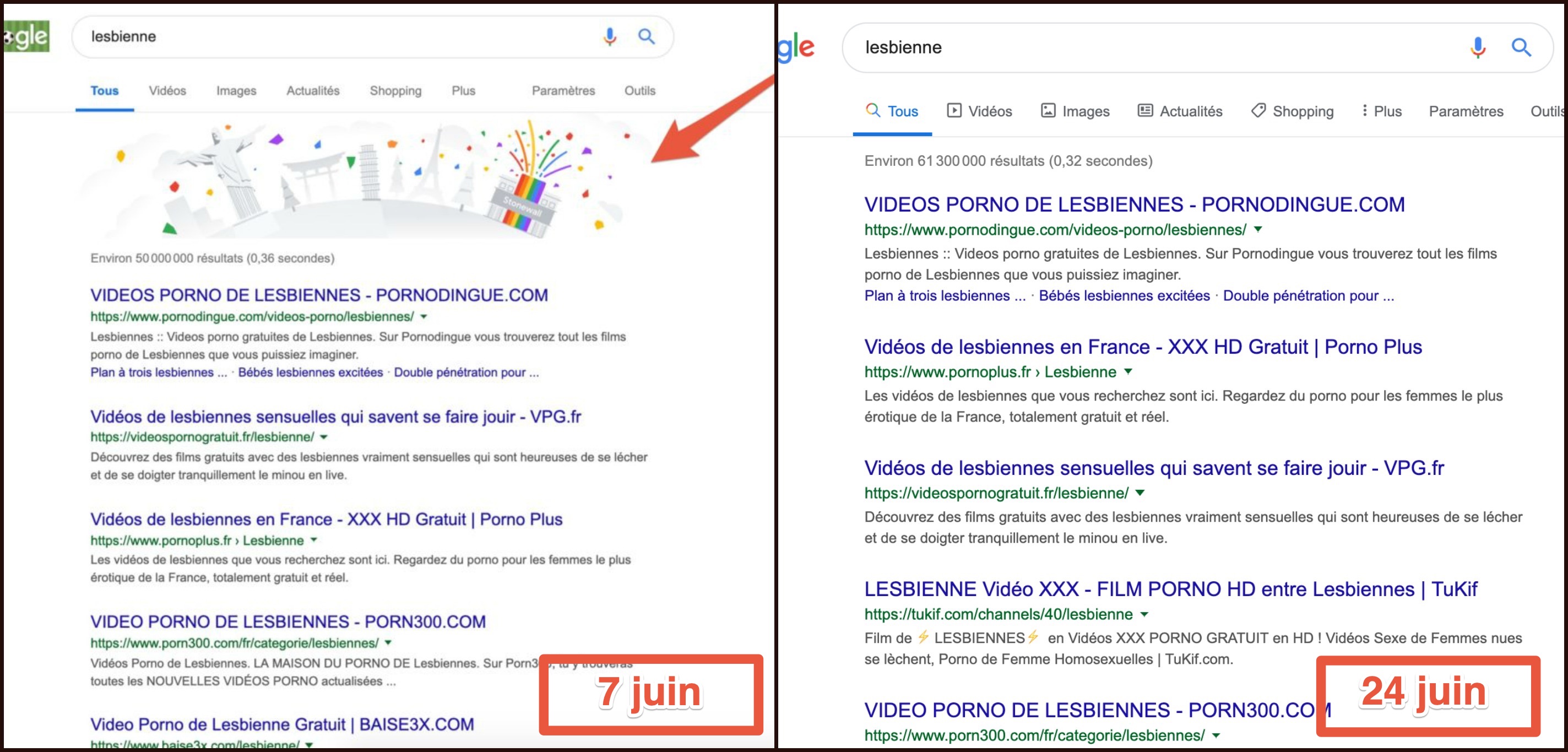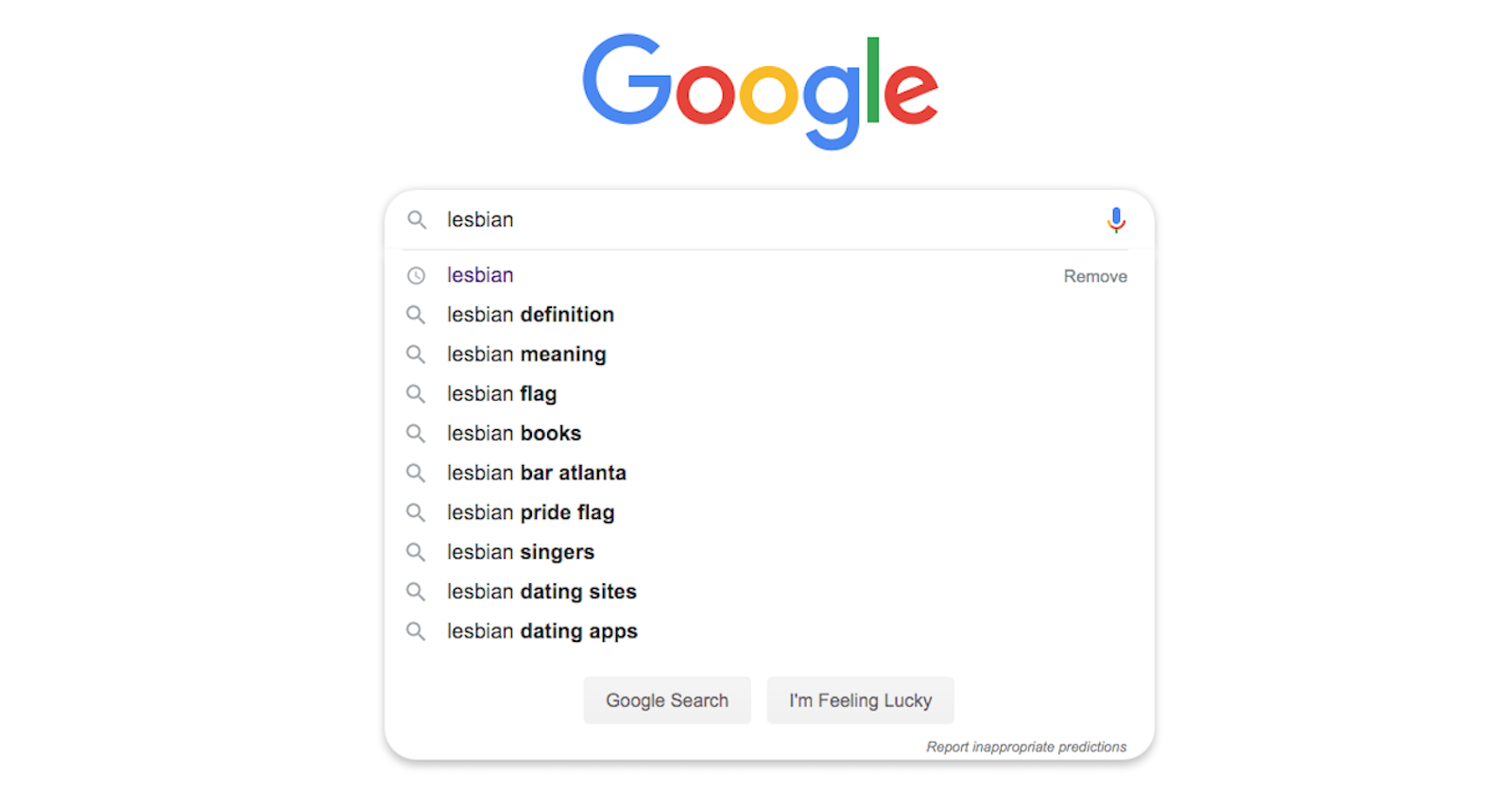Google updated its algorithm in mid-July following complaints about the overly sexual nature of search results for queries such as [lesbienne], Google Search Liaison Danny Sullivan has confirmed.
A French website called numerama reported on the troubling search results in June, posting this screenshot:

When asked about the search results, Pandu Nayak, Google’s vice president of search engine quality, told the publication that it was a similar situation to how Google has tried to deal with queries such as [girl] and [teen]:
“I find that these results are terrible, there is no doubt about it. We are aware that there are problems like this, in many languages and different researches.
We have developed algorithms to improve this research, one after the other. We have taken measures in cases where, when there is a reason for the word to be interpreted in a non-pornographic way, that interpretation is put forward.”
The algorithm update presumably was Google’s attempt to fix this problem and feature non-pornographic websites on Page 1 of the search results for queries that have both innocent and explicit interpretations.
Put simply: unless searchers specifically indicate they are looking for explicit content with their query, Google shouldn’t be showing it on Page 1.
The issues with Google’s [lesbienne] search results were resolved as of July 18, according to numerama.
A Google spokesperson told Gizmodo that this issue and fix was unique to the French term “lesbienne” and not the term “lesbian” in English.
The spokesperson added that the changes affected a wider breadth of search queries beyond [lesbienne].
“We work hard to prevent potentially shocking or offensive content from rising high in search results if users are not explicitly seeking that content,” said the Google spokesperson. “As we said at the time, we recognize that our results for the query ‘lesbienne’ in French were falling short.”
Image Credits
Featured Image: Screenshot taken by author
Post image: Screenshot by numerama


